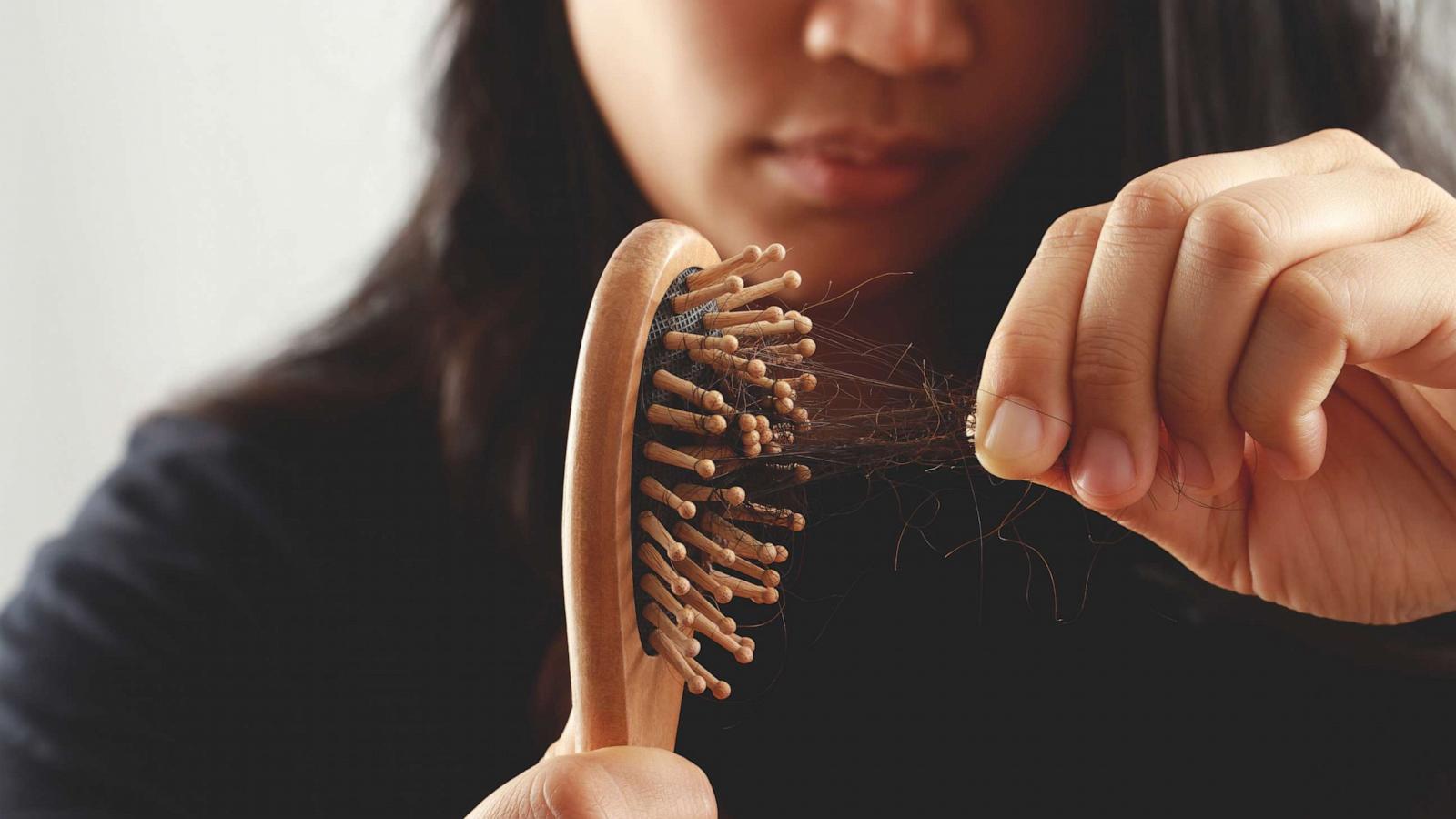Hair loss is a common part of aging. Learn about effective herbal and home remedies to cure hair loss for both men and women naturally.
Aging is an inevitable part of life, and along with it comes various changes in our bodies. One of the most noticeable and often distressing signs of aging is hair loss. For both men and women, thinning hair, receding hairlines, and even bald patches can become a reality. But while hair loss is a natural process, many people are turning to herbal or home remedies to help slow it down or restore their hair’s natural vitality.
Are you noticing more hair in your brush or on your pillow? Don’t worry—you’re not alone. Let’s explore how aging affects hair loss and how natural remedies can help you tackle this concern.
Introduction
Hair loss is a natural part of aging, but it doesn’t have to be something you dread. Many men and women start to lose hair as they get older, but that doesn’t mean it’s a lost cause. Hair loss can be managed with a combination of understanding its causes, taking care of your scalp, and using natural remedies that have been proven to stimulate hair growth. Ready to learn how you can fight back against hair loss naturally?
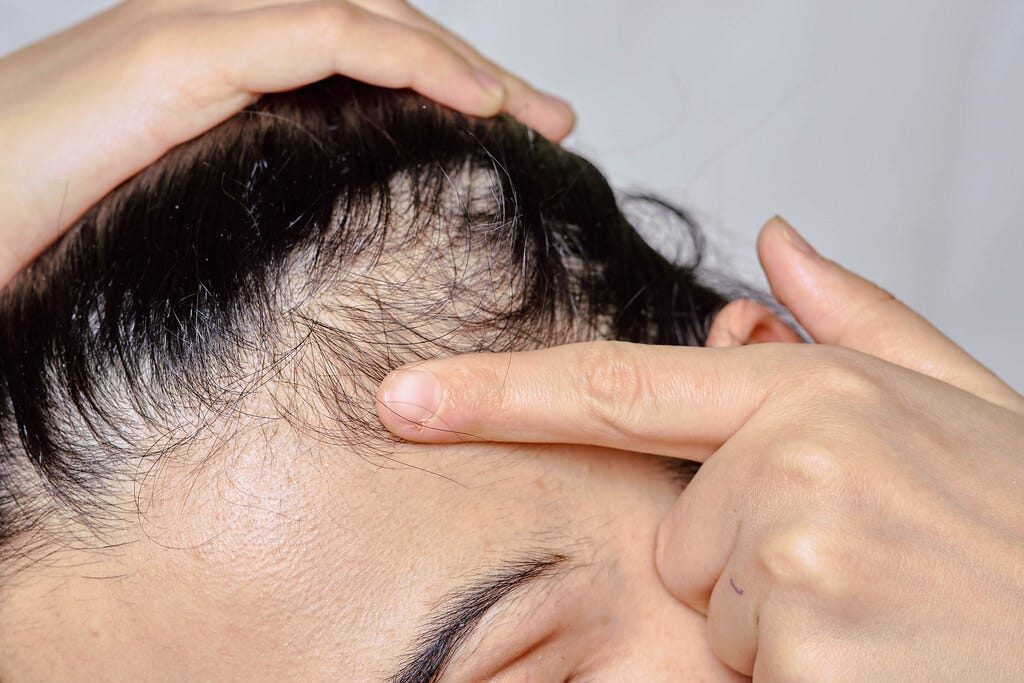
What Causes Hair Loss as We Age?
Aging brings many changes, and hair loss is one of the most common ones. As we age, the body’s ability to regenerate cells and tissues slows down, including hair follicles. This can lead to thinning hair and a slower hair growth cycle. Hormonal changes, especially in women going through menopause, and in men with lower testosterone levels, also play a major role in hair loss.
But did you know that external factors like stress, pollution, and even excessive use of chemicals in hair products can worsen this natural process? Understanding these causes is the first step toward finding a solution.
The Science Behind Hair Loss
Hair loss occurs when the hair follicles shrink over time, resulting in shorter, finer hair—or, in some cases, no hair at all. Each strand of hair grows from a follicle under the skin, and over time, these follicles can become weaker. This process, called miniaturization, is what leads to thinning hair or balding.
Androgenetic alopecia, commonly known as male or female pattern baldness, is the most common cause of hair loss due to aging. It’s largely genetic but can be managed with care and the right remedies.
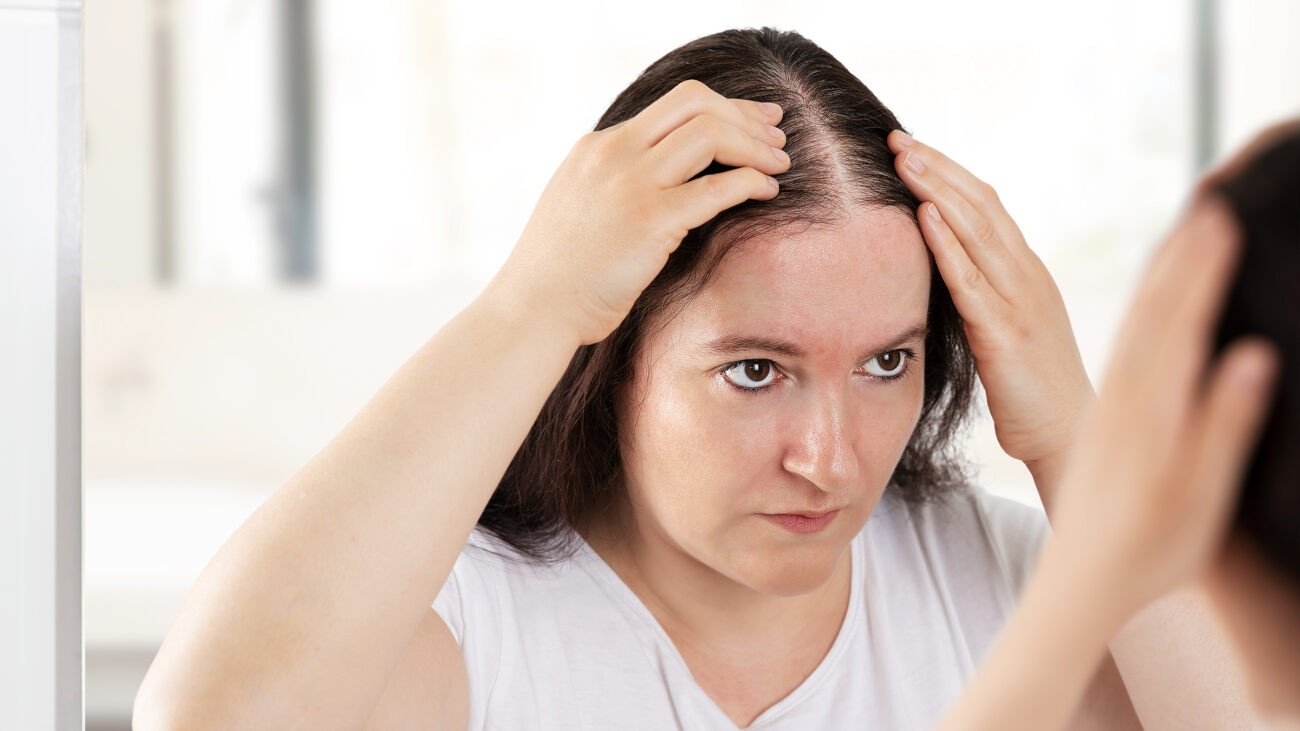
Why Do Women Experience Hair Loss?
For women, hair loss can be particularly emotional and stressful. Women often experience diffuse thinning, where hair becomes thin all over the scalp rather than in patches like men. Hormonal imbalances, particularly during menopause, pregnancy, or due to conditions like polycystic ovary syndrome (PCOS), can trigger hair loss.
Stress, nutritional deficiencies, and the overuse of chemical-laden hair products can further exacerbate the issue for women. However, the good news is that these causes can often be reversed or managed with proper care.
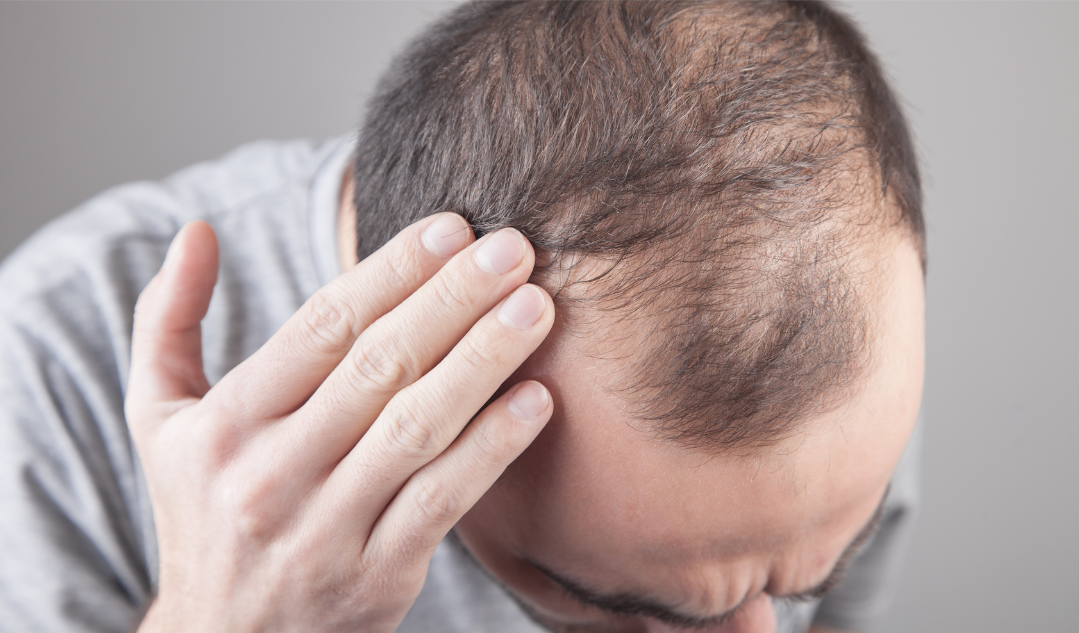
Why Do Men Experience Hair Loss?
Men usually experience hair loss in a different pattern—receding hairlines or bald patches, particularly at the top of the head. This is often due to a genetic condition known as androgenetic alopecia or male pattern baldness. As testosterone converts into dihydrotestosterone (DHT), it can cause the hair follicles to shrink, leading to permanent hair loss over time.
Lifestyle factors such as stress, poor diet, and lack of scalp care can also contribute to hair loss in men. But just like women, men can benefit greatly from natural and herbal remedies.
Herbal Remedies for Hair Loss
Nature’s Pharmacy offers a wealth of solutions for hair loss. Some herbal remedies have been used for centuries to help stimulate hair growth and prevent thinning. Here are a few worth considering:
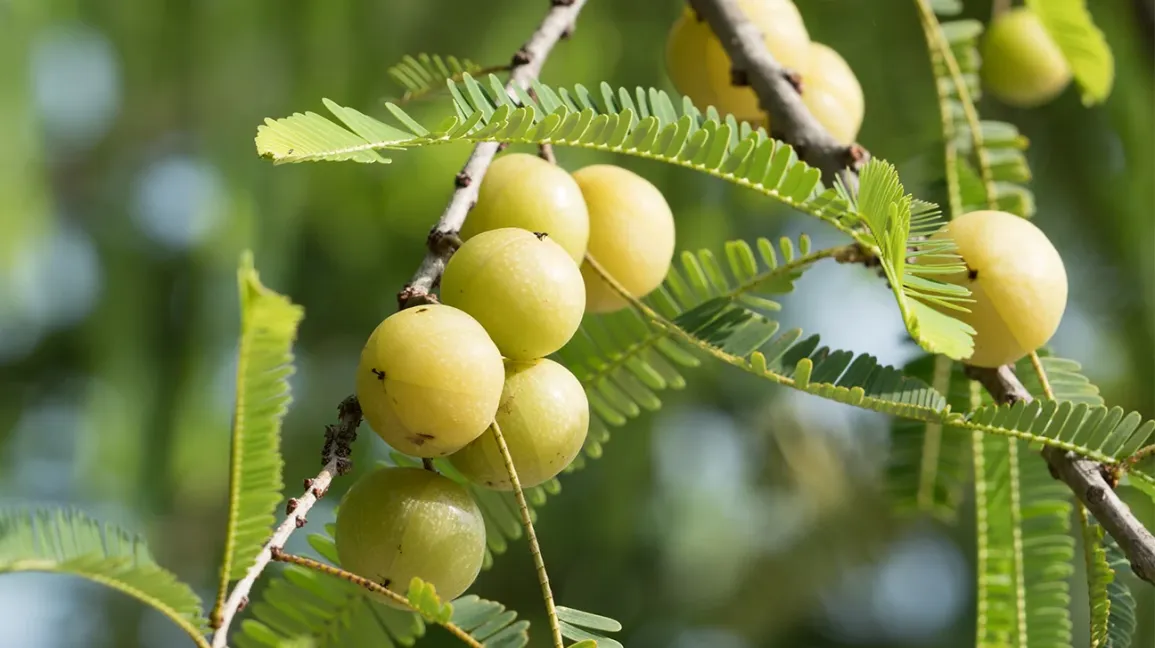
- Amla (Indian Gooseberry): Rich in vitamin C, amla strengthens hair follicles and promotes growth.
- Bhringraj: Known as the “king of herbs” for hair growth, Bhringraj improves blood circulation in the scalp and encourages hair growth.
- Fenugreek: This common kitchen ingredient is loaded with protein and nicotinic acid, both known for promoting hair growth and combating dandruff.
- Aloe Vera: Aloe vera helps in soothing the scalp, reducing dandruff, and unblocking hair follicles that may be clogged by excess oil.
Adding these herbs to your hair care routine can be as simple as using their oil extracts or applying masks.
Home Remedies to Fight Hair Loss
Looking for remedies you can try with ingredients from your pantry? Home remedies can be a powerful way to combat hair loss. Here are some of the most effective ones:
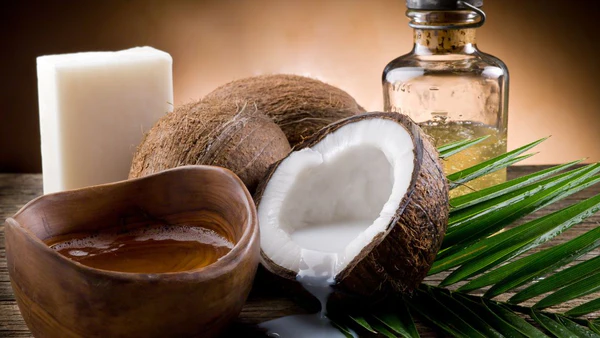
- Coconut Oil Massage: Coconut oil penetrates deep into the hair shafts, preventing protein loss and keeping the hair strong and healthy.
- Onion Juice: While it might smell pungent, onion juice is rich in sulfur, which promotes hair growth by improving blood circulation to the follicles.
- Green Tea Rinse: The antioxidants in green tea help reduce hair fall and stimulate hair follicles.
- Egg Mask: Eggs are packed with protein, which is essential for repairing hair and promoting growth.
These natural treatments are easy to prepare at home and can help restore hair’s vitality.

The Role of Diet in Hair Health
Did you know that what you eat plays a huge role in the health of your hair? A diet rich in vitamins, minerals, and proteins is essential for maintaining thick, healthy hair. Here’s what to focus on:
- Iron and Zinc: Deficiencies in these minerals can cause hair thinning. You can find them in foods like spinach, lentils, and seeds.
- Vitamin E: This antioxidant helps in repairing and building tissue, including the hair follicles.
- Omega-3 Fatty Acids: Found in fish like salmon and flaxseeds, Omega-3s are essential for nourishing the scalp and promoting hair elasticity.

The Importance of Scalp Care
Think of your scalp as the foundation of a house—if it’s not strong, the structure will eventually collapse. The same is true for your hair. Keeping your scalp healthy is key to preventing hair loss. Regularly exfoliating your scalp to remove dead skin cells and excess oil can keep the follicles clear and stimulate hair growth.
Natural scalp scrubs made from sugar, honey, and olive oil can be a gentle yet effective way to exfoliate without using harsh chemicals.
Lifestyle Changes to Combat Hair Loss
Lifestyle factors like stress, sleep patterns, and exercise can have a big impact on hair loss. High levels of stress can cause the hair follicles to go into a resting phase, resulting in hair shedding. Practicing mindfulness, yoga, and deep breathing exercises can help manage stress and, in turn, reduce hair loss.
Getting enough sleep and staying active also ensures proper blood circulation to the scalp, which is essential for hair growth.
Hair Loss Prevention Tips
Preventing hair loss before it starts is easier than trying to reverse it. Here are some tips that can help:
- Avoid using heat styling tools frequently.
- Stay away from harsh chemical treatments like dyes and perms.
- Use a wide-toothed comb to prevent hair breakage.
- Protect your hair from the sun’s UV rays by wearing a hat when outdoors.
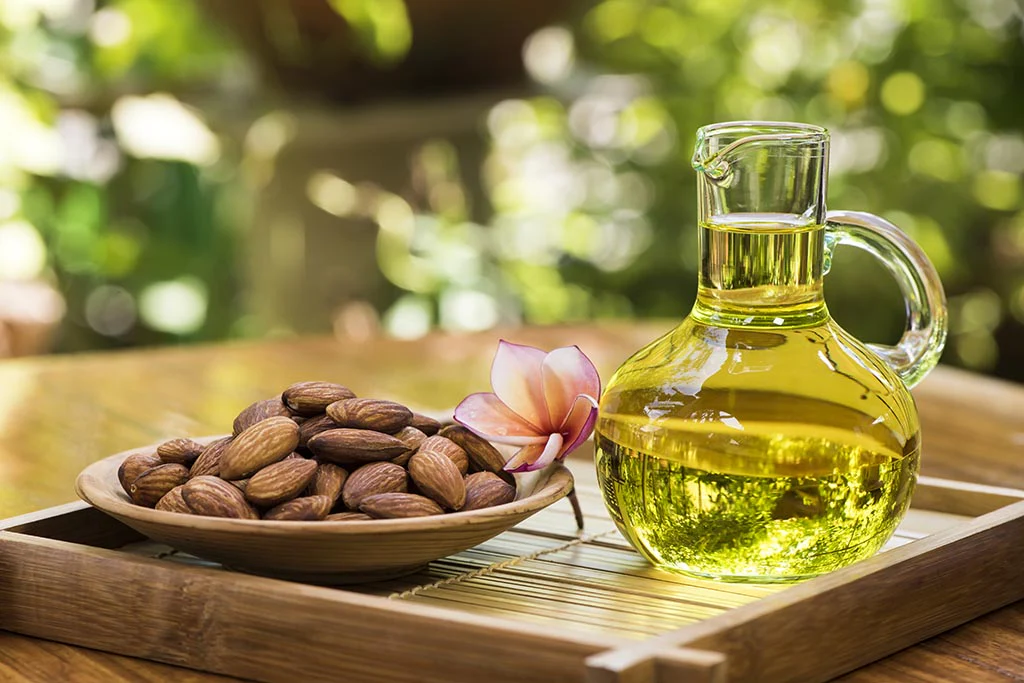
The Benefits of Natural Oils for Hair
Natural oils are a must-have in any hair care regimen, especially if you’re trying to fight hair loss. Some of the best oils to use include:
- Castor Oil: Promotes hair growth and strengthens strands.
- Rosemary Oil: Known for stimulating hair follicles and increasing circulation.
- Jojoba Oil: Great for moisturizing the scalp and preventing dryness, which can lead to hair loss.
Regular oiling keeps the scalp healthy and nourished, encouraging hair to grow strong and thick.
How Long Does It Take to See Results?
Patience is key when using natural or herbal remedies. Unlike chemical treatments, which may give quicker but less sustainable results, herbal remedies work gradually to restore your hair’s health. It typically takes a few months of consistent use to notice a difference in hair density and strength.
Conclusion
Hair loss might be a natural part of aging, but that doesn’t mean you can’t fight back with natural solutions. By incorporating herbal remedies, home treatments, and making lifestyle changes, you can give your hair the care it deserves. It’s never too late to start, and with patience and persistence, you can achieve noticeable results.
FAQs
1. Can herbal remedies fully stop hair loss?
Herbal remedies can help reduce hair loss and promote hair growth, but results vary depending on the individual and consistency of use.
2. How often should I use oil for hair loss?
Oiling your hair 2-3 times a week is sufficient for most people. Consistency is key for achieving the best results.
3. Are there any side effects of using natural remedies?
Most natural remedies are safe, but it’s always a good idea to do a patch test before applying anything to your scalp, especially if you have sensitive skin.
4. Does diet really affect hair loss?
Yes, a poor diet lacking essential vitamins and minerals can contribute to hair thinning and hair loss.
5. Can stress cause hair loss?
Absolutely. Stress can trigger a type of hair loss called telogen effluvium, where hair prematurely enters the resting phase and falls out.

